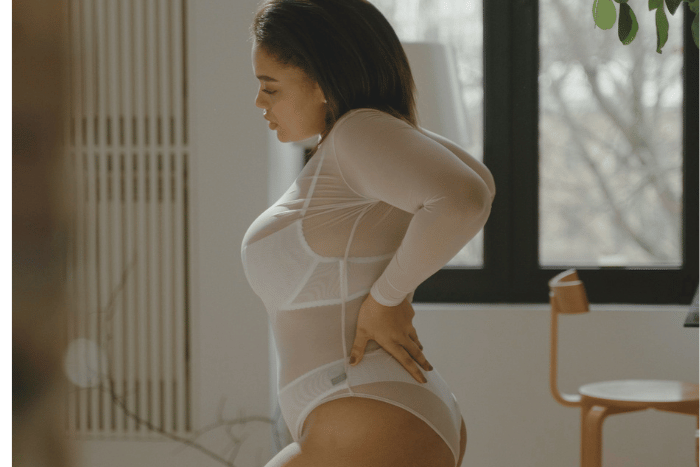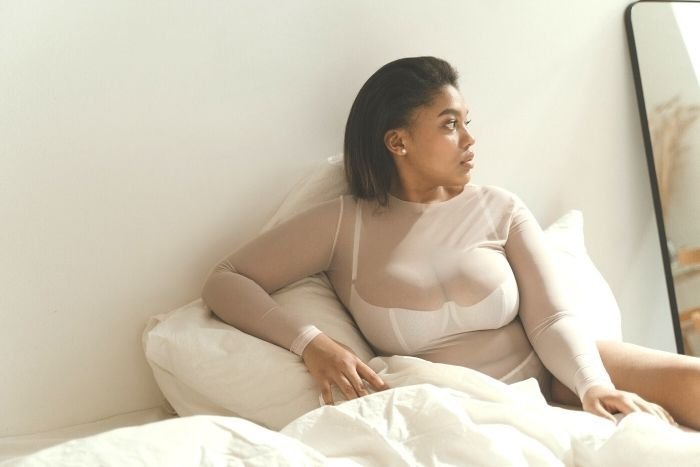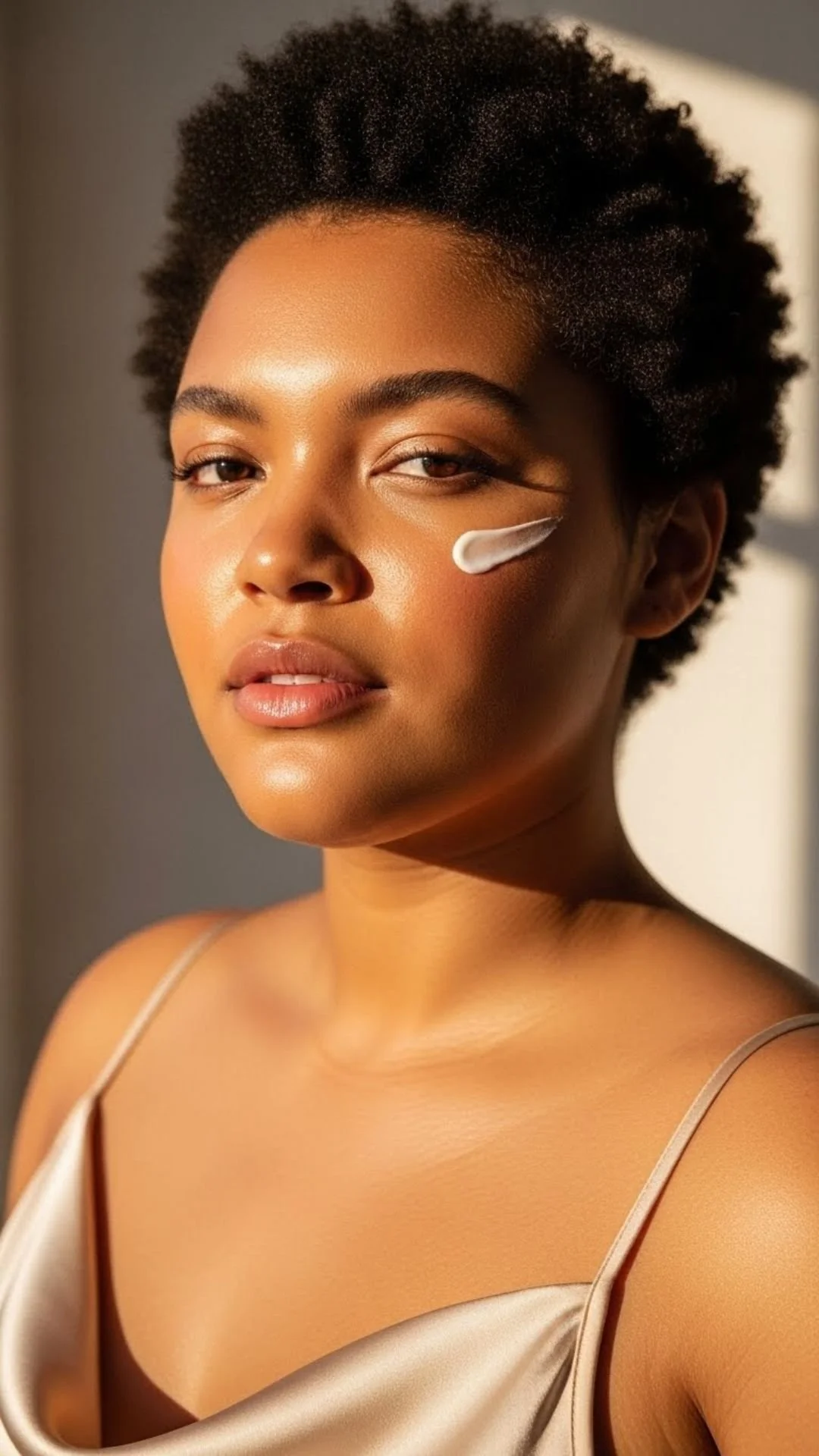A Simple Guide To Understanding Body Dysmorphic Disorder.
How To Identify Body Dysmorphic Disorder And Improve Your Self-Esteem.
(This post was originally published on February 23rd 2022, updated on May 1st 2023)
Body dysmorphia is a deeply personal issue that we hold close to our hearts. We have witnessed firsthand the negative impact this condition can have on a person's life, whether it is a mild or severe. Our Body Confidence movement was launched in 2015 with the aim of encouraging women to embrace their bodies, regardless of their size. The motivation behind this initiative stemmed from our daily conversations with women who expressed unhappiness with their bodies.
When we introduced Olyinka Magazine, our mission was to promote body positivity and confidence. We wanted to create a platform where women could aspire to be their best selves without conforming to unattainable body standards.
Fast forward to 2022, and we have seen a positive shift in women's attitude towards their bodies. The negative stigma associated with issues like body dysmorphia is diminishing, however, it is important to acknowledge that Body Dysmorphic Disorder (BDD) still exists and needs to be addressed.
BDD is one of the most common disorders affecting women today, particularly among the younger generation. It impacts millions of people worldwide, and as society becomes more open about discussing it, there is an increasing recognition and understanding of this condition.
Social media being a double-edged sword, has hindered but has also played a significant role in raising awareness about BDD. In recent years, celebrities such as Ashley Graham, Billie Eilish, Jameela Jamil, and Lizzo have bravely shared their experiences with BDD, using their platforms as a means to shed light on this topic. Their openness has reached individuals who may have been silently suffering, providing them with a sense of solace and understanding.
Image: Ron Lach
What is Body Dysmorphia?
Body dysmorphia (BD) is a condition where someone is obsessed with an imagined or slight defect in their appearance. The flaw might be imaginary, or the result of an actual physical defect, but for people with BD the imperfection dominates their thoughts and actions and cam cause extreme distress. BDD can be considered as a subtype of body dysmorphic syndrome, (BDS), where there is no obsession about appearance, but the person has distorted thinking and beliefs about their body.
What causes body dysmorphia?
While the causes of body dysmorphia are still unknown, there are numerous factors that may contribute to it. These include:
Childhood bullying
Being overweight/underweight as a child or teenager
Being teased about appearance as a child or teenager, particularly if this has been severe and long-lasting.
Feeling ashamed about your appearance,
Societal/Media standards
Image: Ron Lach
How does body dysmorphia affect people's life?
The person will constantly criticise or compare themselves to others and see themselves as being flawed.
They may have a distorted body image, believing themselves to be obese when they are not.
Some people with body dysmorphia can't go out in public without wearing baggy clothes and large sunglasses to hide their “defects”.
Some may refuse to eat and will not be able to maintain a healthy weight because of their extreme dieting.
How do you cure Body dysmorphia?
The first step towards treating body dysmorphia is to seek professional help. Therapy is a helpful way to understand the cause of body image issues and to learn how to control the behaviour that causes it. There are many ways forms of support, such as talk therapy, behavioural therapy, cognitive behavioural therapy and psychoanalysis. There are also wonderful support groups online.
Body dysmorphia quotes: how can they help?
Body dysmorphia quotes can be a helpful tool in shifting your perspective about yourself and your body. Individuals with this condition often perceive their bodies differently from what they actually are. By engaging with quotes through hearing, speaking, or meditation, one can find them beneficial and using quotes during moments of self-doubt can be very effective. You can explore our article 10 Body Dysmorphia Quotes For Self Esteem where we have selected 10 empowering quotes to assist you in navigating through challenging times and reshaping your thoughts.
Image: Ron Lach
Body dysmorphia: Next Steps
It can be hard to know where to start on the journey to healing from body dysmorphia, but if you’re willing to take it one step at a time, you will get there.
The first step is to realise that recovery is possible. You are not alone in your struggle, and there are people who can help you get where you want to go. There’s no shame in wanting to heal from these issues; it’s an honourable goal.
The second step is to recognise what needs to change in order for that change to happen. This means looking at the factors that contribute to your BDD, and identifying the steps you need to take to overcome them.
The third step is learning how to cope with your body dysmorphia. If you’re suffering from BDD, it’s likely that your feelings of self-loathing and self-doubt are holding you back from living a fulfilling life. There are many ways to deal with these negative thoughts and emotions, but the most important thing is that you find something that works for you.
Healing from body dysmorphia is a journey that requires patience, support, and self-reflection. By realising that recovery is possible and seeking professional help, you can take the first steps towards a healthier mindset. Identifying the factors that contribute to your body dysmorphia and finding effective coping mechanisms are essential for overcoming this disorder.
Remember, you are not alone in this struggle, and there are solutions you ca implement that can guide you towards a more fulfilling life. Don't hesitate to reach out for help, whether it's through your local GP or the NHS psychological therapies service (IAPT. (UK)
To read more topics related to mental health, self-care, and personal growth, we invite you to subscribe to Olyinka Magazine. By subscribing, you'll gain access to insightful articles, expert advice, and inspiring stories that can support you on your path towards well-being. Don't miss out on this opportunity to connect with a community of like-minded individuals who are dedicated to nurturing their bodies and mental health. Subscribe to Olyinka Magazine today and empower yourself with the knowledge and resources you need to thrive.
Featured Posts
Olyinka is a brand that produces beautiful, handcrafted, bespoke lingerie. Our mission is to change the narrative within the lingerie industry by encouraging, inspiring, and empowering women. We do this via our monthly newsletters, as well as giving you first access to exclusive news, freebies, and discounts. So sign up below! Become a part of our movement! And as a thank you, you will receive 10% off your first lingerie purchase. Sign up here!





